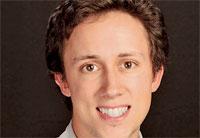WASHINGTON -- Volkswagen of America hired attorney and compensation expert Kenneth Feinberg to help review and resolve claims by owners of diesel vehicles with illegal emissions software.
Feinberg, who oversaw the compensation program for victims injured or killed by General Motors vehicles with defective ignition switches, will develop and administer a program to address claims brought by owners of VW’s 2.0-liter and 3.0-liter diesel vehicles with the illegal software. Feinberg said the program will be operated independently but crafted with input from VW, vehicle owners, their attorneys, regulators and other interested parties.
VW of America CEO Michael Horn announced Feinberg’s hiring in a statement Thursday.
“His extensive experience in handling such complex matters will help to guide us as we move forward to make things right with our customers,” the statement said.
In a conference call with reporters, Feinberg said VW’s goal is to satisfy affected owners while also diverting claims away from the court system to avoid protracted litigation. Customers who participate in the program will waive their rights to sue VW over the diesel emissions issue.
Feinberg said he anticipates a “menu of remedies” will be made available in the program. Feinberg also anticipates that owners will be required to have their vehicles repaired under Volkswagen’s eventual recalls to fix the emissions violations to be eligible to participate in the compensation program, though he noted that that was an assumption on his part.
He said it is too early to discuss specifics about forms of compensation, whether Volkswagen will buy-back affected diesel vehicles from owners, or how much the total program could cost in the end. Camille Biros, deputy administrator on the VW claims program, said “everything is on the table. We haven’t ruled anything in or out at the moment.”
The remedies will be attractive enough, Feinberg said, for eligible owners to “decide voluntarily to accept a solution under this program that will be the equivalent of legal litigation.”
Feinberg and Biros declined to say how long it will take to develop the plan but Biros said that process has taken 60-90 days in past cases.
While VW must ultimately approve the program, Feinberg stressed that it will be administered independently, saying VW has expressed that “they do not want to interfere with the independent evaluation of any claim, and that is a tribute I think to the company and that is what we’re going to do.”
Volkswagen faces more than 500 lawsuits related to the diesel emissions violations that were assigned to U.S. District Judge Charles R. Breyer in San Francisco last week.
Feinberg issued his final report on the GM ignition-switch claims fund on Dec. 9, noting GM paid out $594.5 million in settlements and approved 399 death and injury claims.
Feinberg has become the go-to expert for high-profile settlement cases. In addition to the GM ignition-switch fund, Feinberg oversaw the compensation programs for the victims of the Sept. 11, 2001, terrorist attacks and the 2010 BP Deepwater Horizon oil spill disaster.
Lawyers nominated
Feinberg earlier had been nominated by plaintiffs’ lawyers to oversee a settlement process in consumer lawsuits against the company. Other lawyers and multiple retired judges have also been proposed as candidates to oversee any possible settlements.
Feinberg will be consulting with the U.S. Environmental Protection Agency and the California Air Resources Board in developing the claims program, the company said.
The consumer lawsuits were set off by the EPA’s Sept. 18 announcement that Volkswagen used deceptive software to make some vehicles with diesel engines appear as if they met emissions standards. The cheating software is installed in about 11 million vehicles worldwide, including 482,000 2.0-liter diesel vehicles sold in the U.S.
The lawsuits allege varying claims, including consumer fraud, violations of civil racketeering laws and breach of contract. The consumers are seeking returns of premiums paid for the vehicles, compensation for diminished value and possible return of purchase price, minus depreciation.
Within hours of the EPA announcement, lawyers began filing suits as class actions on behalf of all U.S. vehicle owners alleging violations of state consumer laws. Following reports of additional questionable emissions software in about 85,000 VW, Audi and Porsche cars with 3.0-liter diesel engines in the U.S., additional suits were filed for consumers owning those vehicles.
The claims program will cover the 3.0-liter vehicles as well as the earlier group of 2.0-liter, the company said.
The cost of buying back the vehicles exceeds $9.4 billion, according to Bloomberg Intelligence.
Camille Biros, who will be deputy administrator of the VW claims program, told Reuters is too early to say if the program may offer buybacks to vehicle owners, cash compensation or other specific compensation.
The oldest VW diesel vehicles will be the most difficult to repair because they need more than a software upgrade.
California fix
Meanwhile, a group of business leaders, including Tesla Motors CEO Elon Musk, today urged the California Air Resources Board to order VW to transition to electric vehicles, rather than try to fix diesel vehicles.
The state board and the EPA are investigating VW's conduct and considering potential fixes. VW is still barred from selling 2016 diesel vehicles as regulators consider their repair plans.
"A giant sum of money will thus be wasted in attempting to fix (VW diesel) cars that cannot all be fixed," the business leaders wrote.
Instead, Musk and others urged California to order VW to accelerate the sale of zero emission electric vehicles. The letter argues EVs would significantly offset diesel emissions and California should require VW to invest in manufacturing in the state. VW declined to comment.
"A satisfactory way to fix all the diesel cars does not likely exist, so this solution side steps the great injury and uncertainty that imposing an ineffective fix would place on individual diesel car owners," Musk and others wrote.
Bloomberg and Reuters contributed to this report.






